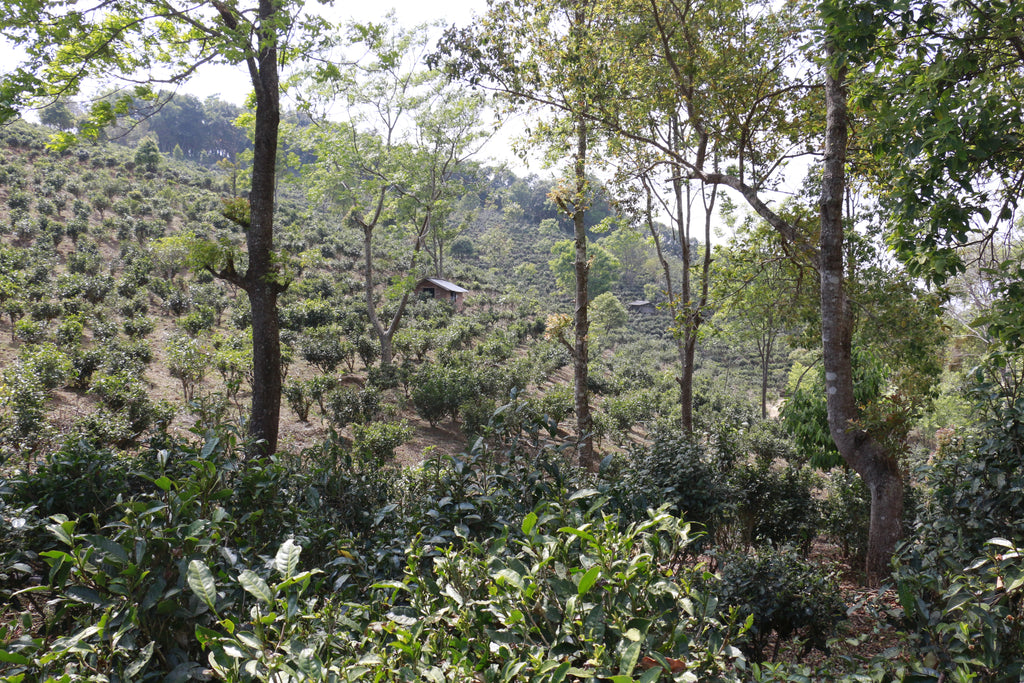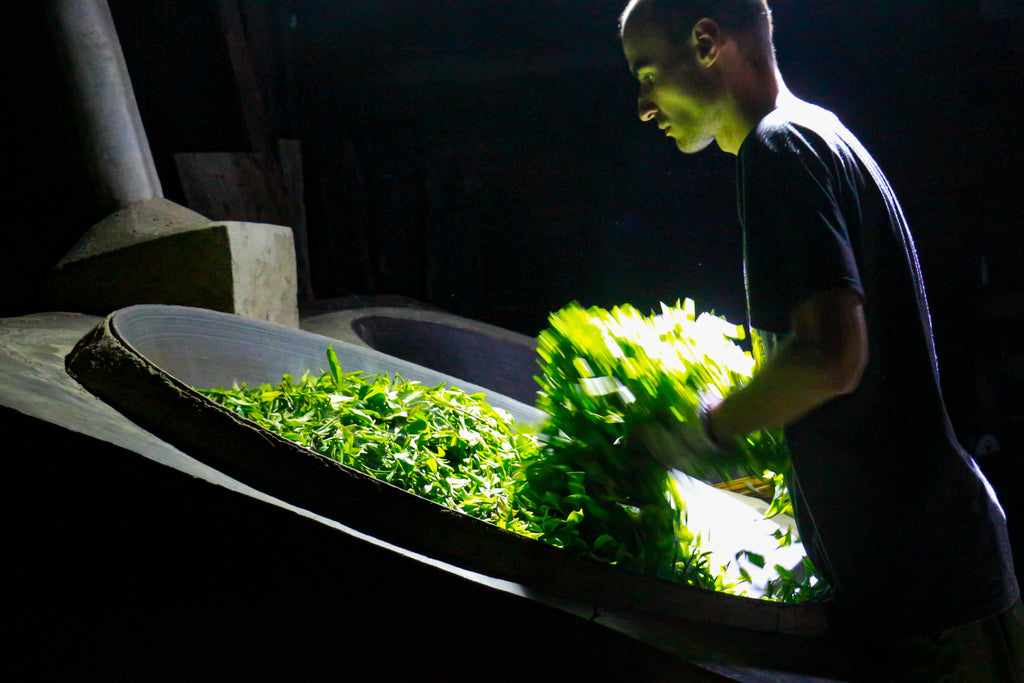Free worldwide shipping for orders over $30
Sold Out
Spring 2021, mid March to early April, natural tea gardens
Grown by our family, hand-processed by our team
Experience an invigorating tea, loaded with good fragrance and well sustained by vibrant sweetness. Light bitterness and medium astringency add to the Jingmai experience. The more you drink the more you want!
Your perfect daily drinker, for home and office brewing.

We are based on Jingmai mountain, on the western side of the Pu-erh tea producing areas in Yunnan. This is where we spend our Spring and Autumn, making tea every day.
The Jingmai Miyun is a blend of several natural tea gardens (also known as Shengtai) that our family manages. We have five plots of shengtai, located at various altitudes and in different environments.
While conventional plantations loaded with pesticides and growth promoters were prevalent in Yunnan a few decades ago, the revival of the Pu-erh tea industry in the 2000s lead a push for better quality. When it comes to Pu-erh tea, you can't hide bad material under a good processing, it's a tea true to its origin.
The conventional plantations were not able to produce leaves that would satisfy the demanding pu-erh tea enthusiasts. From 2010 on, a lot of conventional plantations were redesigned. Plantation density was reduced and shade tree were planted in order to build a resilient ecosystem. This design would produce less tea per surface, but would offer better protection against pest and disease and wouldn't require much fertilization. The tea trees were allowed to grow taller, at about 2m high.
This design change allowed the farmers to ban pesticides and chemical fertilizers. Thanks to a richer ecosystem and clever design, the leaves would grow high quality leaves and give satisfying Pu-erh tea.
You can learn more about the history of the natural tea gardens in this video:
The whole blend is well balanced and brings out this little charm of Jingmai. You get the typical orchid fragrance, although less pronounced than in the Jingmai Gulan. Even though the tea is young, you get some minerality: a combination of bitterness and astringency that makes the tea very enjoyable in the mouth. The tea can be brewed about ten times, even more if you like long sweet brews.
In Jingmai, most tea makers will process the most expensive teas by hand and will use machines for the bulk of their harvest. We found out that by treating all teas equally, the quality gap between ancient and young gardens would be partly mitigated.
You can be sure as much care is put into these leaves as for the Jingmai Gulan, the difference you taste is purely due to the raw material.
